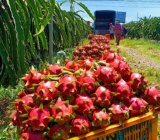Hotline: (+84) 888 01 81 87
Hotline: (+84) 888 01 81 87 |
Cart (0)
PRODUCTS LIST
Latest news
Statistical access
Counter Online: 10
During the day: 956
In month: 16488
Total access: 1145406
Dandelion is a corruption of the French “dent de lion” meaning "lion's tooth", referring to the coarsely toothed leaves. The plant is also known as blowball, the cankerworm, doon-head-clock, witch's gowan, milk witch, yellow-gowan, Irish daisy, swine's snout, and wild endive. The English folk name "piss-a-bed" refers to the strong diuretic effect of the plant's roots.
The entire plant is edible and nutritious, including the leaves, stems, flowers, and roots. Dandelion leaves and buds have been a part of traditional Kashmiri cuisine, Albanian cuisine, Slovenian, Sephardic, Chinese, and Korean cuisines. In Crete, the leaves of a variety called 'Mari' and 'Mariaki' are eaten by locals, either raw or boiled, in salads. The flower petals and other ingredients, usually citrus, are used to make dandelion wine. The ground, roasted roots can be used as a caffeine-free dandelion coffee. Dandelion was also traditionally used to make the traditional British soft drink dandelion and burdock and is one of the ingredients of root beer. Also, dandelions were once delicacies eaten by the Victorian gentry, mostly in salads and sandwiches. The flowers of dandelions are typically eaten before they start to become seed heads.
Historically, dandelion was prized for a variety of medicinal properties, and it contains a number of pharmacologically active compounds. Dandelion is a herbal remedy in Europe, North America, and China. It has been used in herbal medicine to treat infections, bile and liver problems, and as a diuretic. Dandelion has been used as a medicinal plant for thousands of years to treat inflammation, swollen lymph nodes, cysts and abscesses, and detoxify the kidney and liver.



669740786643.jpg&w=160&h=140)







